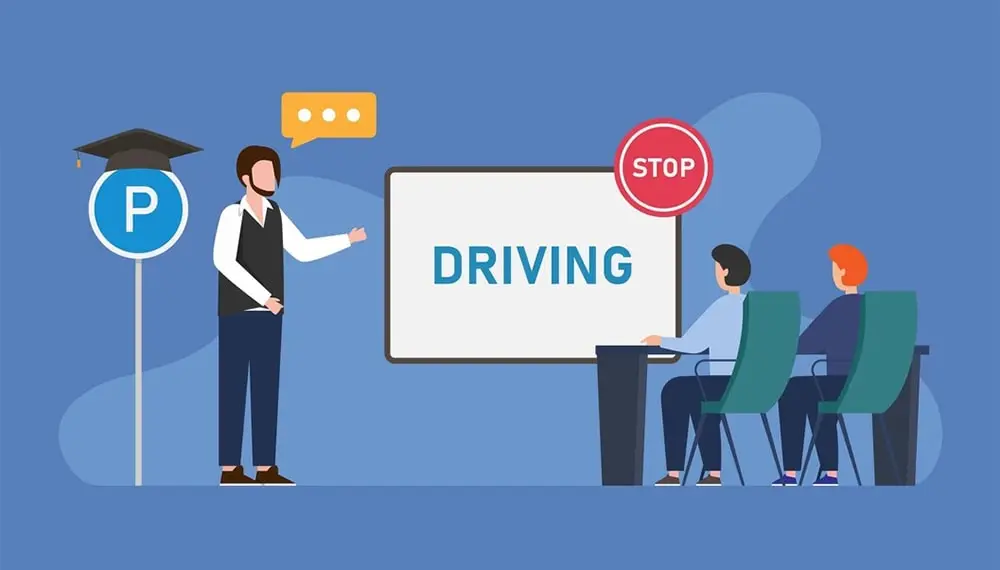Product Knowledge Training 101
Rohit Kumar
26 Mar, 2024

In today's fast-paced market, the depth of an employee's product knowledge can significantly influence a company's trajectory. This understanding encompasses a comprehensive grasp of how a product fits within the broader landscape of customer needs, competitive differentiation, and the evolving marketplace. Product knowledge training emerges as a cornerstone strategy for businesses aiming to empower their workforce, elevate customer satisfaction, and drive sales performance to new heights.
The essence of product knowledge training is its ability to bridge the gap between a company's offerings and the customer's expectations. It equips customer-facing teams with the tools to communicate effectively, confidently address queries, and tailor solutions that resonate with the client's unique challenges. Moreover, it fosters a continuous learning and adaptation culture, ensuring that employees remain agile and informed in an ever-changing business environment.
Through the lens of this article, we will explore the multifaceted benefits of product knowledge training, offering insights and strategies to implement an effective program that aligns with your business goals. Join us on this exploration to unlock the full potential of your team and set a new standard for excellence in your industry.
The Importance of Product Knowledge
In the competitive landscape of modern business, product knowledge guides the success of customer interactions and sales strategies. This deep understanding of a product’s features, benefits, and applications is necessary for teams across an organization. From the sales floor to customer support lines, the ability to articulate what a product does, how it benefits the user, and why it surpasses alternatives can dramatically influence a company's bottom line.
Sales teams with extensive product knowledge can craft compelling narratives that resonate with potential buyers. They can confidently navigate conversations, anticipate questions, and quickly address concerns. This level of expertise helps close deals more efficiently and build trust with customers. When sales representatives demonstrate a thorough understanding of their offerings, they signal to customers that they are in capable hands.
Beyond sales, customer support teams with a robust grasp of product details can deliver superior service. They become adept at solving problems quickly and efficiently, leading to higher customer satisfaction rates. When customers face challenges or confusion, a knowledgeable support team can transform a potentially negative experience into a positive one, fostering loyalty and encouraging repeat business.
Moreover, product knowledge extends its benefits internally, enhancing team confidence and morale. Employees who feel well-versed in their company's products carry a sense of pride and competence. This confidence radiates outward, affecting their interactions with customers and colleagues alike. It cultivates a culture of expertise and professionalism, setting a standard for excellence.
The importance of product knowledge transcends the immediate benefits of enhanced sales and customer satisfaction. It lays the foundation for a company's reputation, employee satisfaction, and long-term success. In the following sections, we will explore how to implement effective product knowledge training and overcome common challenges, ensuring your team meets the demands of today's market with confidence and expertise.
Implementing Effective Product Knowledge Training
Implementing effective product knowledge training requires a robust approach that addresses your company's goals and the needs of your team. The process begins with clearly understanding what your employees need to know and the best methods to deliver this information. Here are key strategies to ensure your product knowledge training program is successful and impactful.
First, identify the core elements of your product that every team member should understand. That includes features, benefits, the ideal customer profile, and common objections or questions customers may have. Equipping your team with this knowledge ensures they can confidently discuss and recommend your product.
Next, consider the format and delivery of your training program. In today's digital age, online training modules offer flexibility and accessibility, allowing your teams to learn at their own pace and schedule. Interactive eLearning courses, webinars, and virtual workshops can engage employees more effectively than traditional lecture-based training. Incorporating quizzes, simulations, and real-life scenarios can also enhance learning retention.
Customization of training content is another critical factor. Tailor your training to address the specific roles and responsibilities within your team. Sales personnel might require in-depth knowledge about product positioning and competitive differentiation, while customer service teams must master troubleshooting and support protocols. Customizing the training ensures that each team member receives relevant and practical knowledge.
Ongoing training and updates are essential to keep your team's product knowledge current. As your product evolves, so should your training program. Regularly scheduled refreshers and updates ensure your team is informed about new features, changes, and improvements. This ongoing commitment to learning fosters a culture of continuous improvement and adaptability.
Finally, measure the effectiveness of your product knowledge training. Use assessments, surveys, and performance metrics to gauge how well your team applies their knowledge in real-world scenarios. Feedback from these evaluations can help you refine and improve your training program, ensuring it remains relevant and effective.
By implementing these strategies, you create a robust product knowledge training program that empowers your employees, enhances customer interactions, and drives business success. The following sections will explore common challenges in product knowledge training and how to overcome them, ensuring your training efforts yield the best possible outcomes.
Challenges and Solutions
Implementing a product knowledge training program has its challenges. Companies often encounter several challenges that can hinder the effectiveness of their training efforts. However, with every challenge comes a solution, ready to be implemented by those willing to adapt and innovate. Let's explore some common obstacles and the strategies to overcome them.
One significant challenge is updating the training content with the product's evolution. Products change, features are added, and market dynamics shift. Companies should establish a process for regular content review and updates to address this. Assign a dedicated team responsible for monitoring product changes and updating training materials accordingly. An LMS can streamline this process, ensuring all training materials are current and accurate.
Another hurdle is engaging employees in the training process. Traditional training methods sometimes fail to capture participants' interest, leading to poor retention of information. The solution lies in making training interactive and engaging. To motivate employees, incorporate gamification elements such as points, badges, and leaderboards. Use real-life scenarios and simulations that allow employees to apply their knowledge in real-world scenarios. By making learning fun and relevant, employees are more likely to engage with the content and retain the information.
A further challenge is the scalability of training programs. As organizations grow, training a larger workforce across different regions and time zones becomes increasingly complex. Leveraging technology is critical to overcoming this obstacle. An online LMS can train employees regardless of location, ensuring consistent learning experiences across the organization. An LMS also allows tracking progress and performance, revealing areas where additional training may be needed.
Lastly, measuring the impact of product knowledge training can be daunting. Companies often struggle to quantify the benefits of their training programs. To tackle this:
-
Set clear, measurable objectives at the outset of the training program.
-
Use pre- and post-training assessments to gauge knowledge acquisition.
-
Monitor key performance indicators such as sales figures, customer satisfaction scores, and support resolution times to evaluate the training's effectiveness.
Employee feedback can also provide insights into how the training has impacted their performance and confidence.
By addressing these challenges with thoughtful solutions, companies can enhance the effectiveness of their product knowledge training programs. The result is a well-informed, confident workforce equipped to drive customer satisfaction and business success.
Measuring Success and Continuous Improvement
The journey of implementing product knowledge training continues after the delivery of the last module or the completion of the final quiz. The objective measure of a training program's success lies in its continuous assessment and the sustained improvement it brings to employees and the organization. Here's how businesses can gauge the effectiveness of their product knowledge training and foster an environment of ongoing enhancement.
First, establish clear metrics for success before the training begins. These could range from increased sales figures and higher customer satisfaction scores to more specific goals like reduced time in handling customer inquiries or an increase in the number of products each salesperson can competently discuss. Companies can directly correlate training efforts with business outcomes by setting these benchmarks early.
Feedback plays a crucial role in measuring success. Solicit input from participants through surveys, interviews, and informal conversations. This feedback should assess the training content and delivery and inquire about the real-world application of the knowledge gained. Are employees able to answer customer questions more effectively? Do they feel more confident in their roles? This direct feedback is invaluable for understanding the training's impact.
Analyzing performance data offers another layer of insight. Look at the metrics identified at the outset and compare pre- and post-training performance. An uptick in sales, improved customer service ratings, or decreased product returns can all signal the training's effectiveness. However, it's important to consider external factors that influence these metrics, ensuring a fair assessment of the training's impact.
Continuous improvement leads to a successful training program. Use the insights gathered from feedback and performance data to regularly refine and update the training content. The goal is to keep the training aligned with the evolving product features, market demands, and customer expectations. Additionally, consider introducing advanced modules or refresher courses to keep employees engaged and their knowledge updated.
Finally, foster a culture of learning within the organization. Encourage employees to seek additional knowledge, share insights with colleagues, and innovatively apply their learning. Recognizing and rewarding these efforts can motivate the entire team and reinforce the value of continuous learning.
Companies can ensure that their product knowledge training remains a dynamic and valuable asset by measuring success and committing to continuous improvement. This ongoing process enhances employee capabilities and drives business success, creating a virtuous cycle of learning and growth.
Conclusion
In the landscape of modern business, where competition is fierce and customer loyalty is gold, the power of product knowledge cannot be overstated. It is the backbone of customer satisfaction, employee confidence, and organizational success. Through this exploration of product knowledge training, we've uncovered its importance, the strategies for its effective implementation, the challenges it faces, and the metrics by which its success can be measured and continuously improved.
As we conclude, it's clear that product knowledge training is more than a mere checkbox in the vast checklist of corporate initiatives. It is a critical investment in your team's capabilities and your company's future. By equipping your employees with deep product understanding, you empower them to become ambassadors of your brand, champion your customer's success, and drive your business's growth.
The journey toward comprehensive product knowledge is an ongoing one. It evolves as your products do, adapting to new features, markets, and customer needs. The commitment to this journey reflects a commitment to excellence, your employees, and the customers they serve. It signals that your organization values knowledge, understands its power, and is poised to lead in its industry.
Let this exploration serve as a call to action. Evaluate your current product knowledge training efforts, embrace the strategies that promise effectiveness, navigate the challenges with resilience, and measure your success with a keen eye on continuous improvement. The path is laid before you, rich with the potential for transformation and success. Embrace it with enthusiasm and the conviction that well-informed employees are the most valuable asset in the quest for sustained business achievement.
At Core Competency, we provide a suite of Learning Management Systems and eLearning development services designed to empower organizations to deliver effective and engaging product knowledge training. Our cutting-edge technology and client-first approach are tailored to equip teams for excellence in customer interactions and sales performance. Book your free demo today to learn more.




